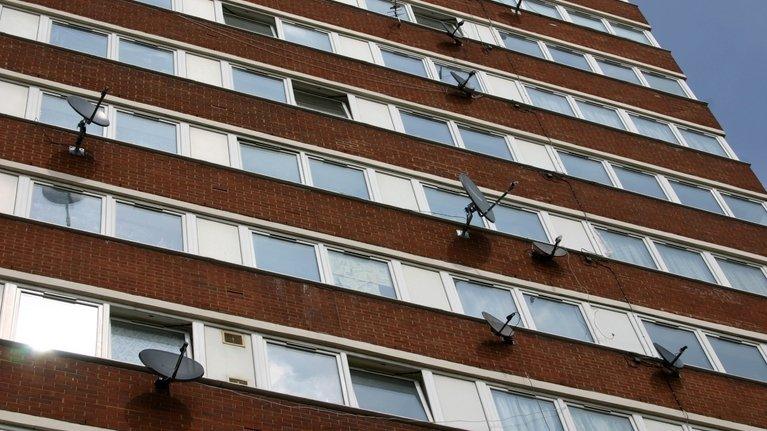Q&A: Universal credit and the benefits overhaul
- Published

The introduction of the government's flagship universal credit payment marks the biggest overhaul of the benefits system since the 1940s.
Potentially, the change will affect nearly eight million people.
There is cross-party support for the theory behind the benefit, but its delivery has been delayed and criticised.
Work and Pensions Secretary Iain Duncan Smith says the new benefit is £600m under budget and is being carefully rolled out "stage-by-stage" - with the aim of being offered in all job centres by 2016.
So how will the changes eventually affect you?

What is the idea behind this?
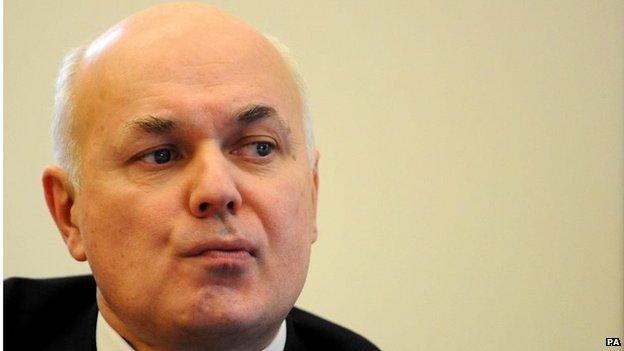
The overhaul of the welfare system has been driven by Mr Duncan Smith, who argues that too many people are trapped on benefits.
He says the changes are designed to make work pay - instead of people seeing their income drop when they move off benefits and into low-paid work.
The move is also a bid to simplify the system by merging a string of working-age benefits and tax credits into one single payment, called universal credit.
This is supposed to reduce the amount of fraud and error that hits the benefits system amounting to billions of pounds a year.

How will it work?
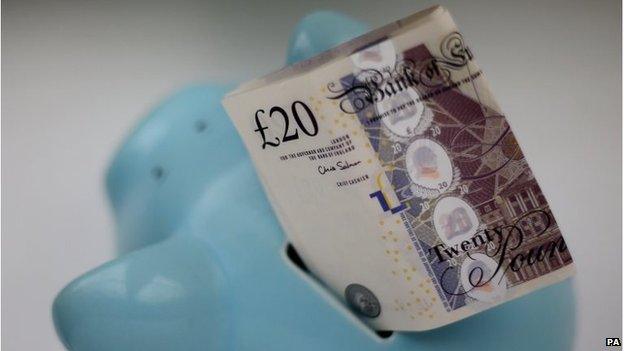
Six working-age benefits will be merged into one.
So, those receiving income-based jobseeker's allowance, income-related employment and support allowance, income support, child tax credit, working tax credit and housing benefit will receive a single universal credit payment.
This will mean big changes to the way those benefits are paid at the moment.
Universal credit will be paid once a month, rather than fortnightly or weekly, and will go directly into a bank account. If both you and your partner each receive these benefits, then this will change to a single payment for the household.
In addition, if you receive help in paying your rent at present, this money goes directly to your landlord. Under universal credit, you will receive the money as part of your benefit payment and you will then have to pay your landlord.

Will it require more money management from people?
Yes. Mr Duncan Smith says that this - and monthly payments - are much more aligned with how people receive wages, so it is preparing people for the world of work.
An online system will be used to make an initial claim, and then to check payments and to organise budgets.

So everything is on the computer?
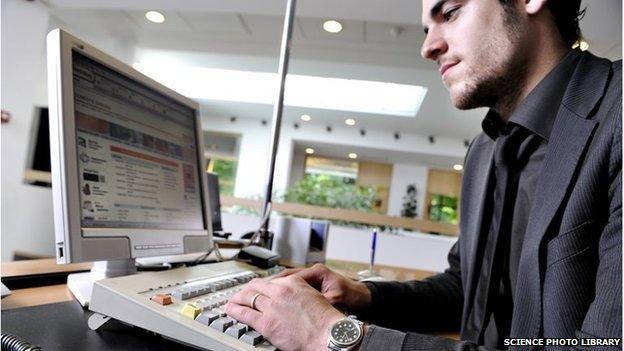
Yes, it is all online. If you do not have access to the internet then you will have to go to the local library, although your local council and jobcentre may be able to help you.
This online system is one of the big question marks over the shift to universal credit.
Questions are being asked about whether the IT system is able to cope with millions of claims once the system is fully up and running.
The National Audit Office said that IT glitches had already affected the national introduction of the scheme.
Its report, published in September 2013, said there were "early setbacks" and that the Department for Work and Pensions had "weak control of the programme, and had been unable to assess the value of the systems it spent over £300m to develop".
Two months later, the Commons Public Accounts Committee said the implementation of universal credit had been "extraordinarily poor", with much of the £425m expenditure to then likely to be written off.
It said that oversight of the universal credit scheme had been "alarmingly weak", warning signs were missed, and there was a "fortress culture" among officials.
Ministers said there was new leadership in place and controls had been strengthened.

How will businesses be affected?
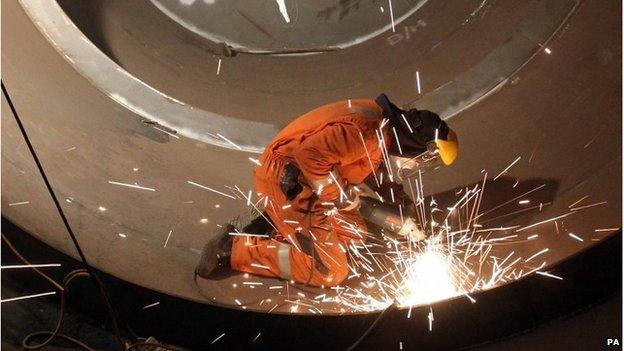
Employers are going to have to keep the UK tax authority fully up-to-date with staff earnings through a computer system called real time information.
This will be used to assess how much people are being paid, and so how much universal credit they are entitled to.
Previously, an agency worker may have worked for fewer than 16 hours one week, and so been able to sign on. The following week they may work more than 16 hours and receive no jobseeker's allowance, then have to make a fresh claim if they fall below the 16 hours the week after that.
Under universal credit, their benefit should be altered automatically as earnings go up and down - a change it is hoped will be beneficial.

Who are the other winners and losers?
In monetary terms, the government estimates 3.1 million households will be entitled to more benefits as a result of universal credit, while 2.8 million households will be entitled to less. Nobody will lose out during the initial transition assuming their circumstances stayed the same, the government says.
Across all households, ministers have said there will be an average gain of £16 per month.
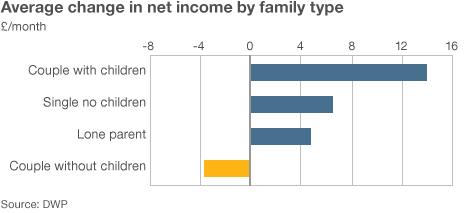
In its initial estimate of the new system, the Institute for Fiscal Studies said that the poorest are likely to do better, especially couples with children. However, the second earner in a family is likely to lose out in the long-term in many cases.
Some charities argue that, because of a broad-brush approach that universal credit takes, those with more complex benefit claims may lose out, such as some people with disabilities who go to work.
Those without a bank account, or who do not have internet access, will have to seek advice to prepare for the new way this benefit is run and paid.

Are there any other concerns?
Labour says that it welcomes the principle behind the changes but it has raised concerns about the implementation of the scheme.
Some unions have also spoken out, with the Unite union claiming it creates a division between a "deserving" and an "undeserving poor" - a division that it does not recognise.

When will all this happen?
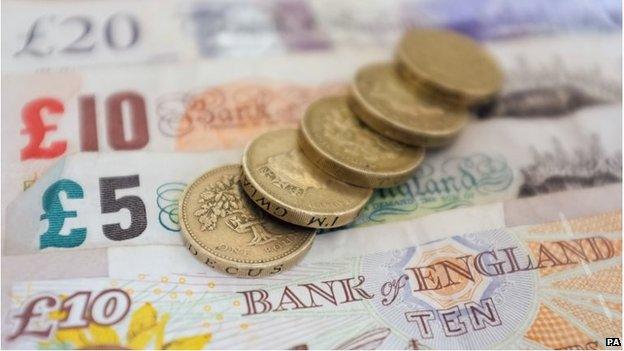
The changes started on a very limited basis in April 2013 with new claimants, who are single, who live in a small number of postcode areas in Ashton-under-Lyne in Tameside, Greater Manchester.
Trials in three more areas - Oldham, Wigan and Warrington - were due to start at the same time, but were delayed. However, they were completed in April 2014.
The government aims to see universal credit - phased in across England, Scotland and Wales from February 2015 - offered in some way by all job centres in Britain by the spring of 2016.
More claimants will gradually move on to universal credit as and when they have a significant change of circumstances, such as starting a new job or when a child is born.
Then by the end of 2017, the rest of all those eligible in England, Scotland and Wales will be moved on to universal credit, although Mr Duncan Smith has suggested that deadline may be missed.
The Northern Ireland Assembly has also agreed to introduce universal credit.

Is this the only change to the welfare system?
No, there have been a whole host of benefits changes, ranging from a cap on the amount of benefits than can be claimed, to changes in the way housing benefit and disability allowances are calculated.
You can read more about all of these in our in-depth section on benefits and tax credits.
- Published3 April 2013
